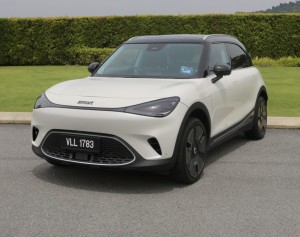Tata Motors looks to local battery play as EV competition rises
By REUTERS | 23 January 2025
NEW DELHI: Tata Motors, India's biggest electric car maker, is betting that locally manufactured EV batteries will help it maintain its edge in an industry where competition is intensifying with new launches, its group CFO said in an interview.
Tata's EV market lead shrunk to 62% in 2024 from 73% a year ago as rival JSW MG Motor gained share with its new cars.
This year, Mahindra & Mahindra, Hyundai Motor and market leader Maruti Suzuki will also launch EVs in India. Global EV giant Tesla has long eyed India too.
Tata Group's $1.5 billion initial investment to build a battery gigafactory in India and supply Tata Motors will allow it to further integrate its supply chain, P.B. Balaji, group CFO at Tata Motors, told Reuters.
"The work on the entire ecosystem is something that we have. We will be a dominant player in this market," Balaji said on the sidelines of India's car show last week where EVs from domestic players as well as China's BYD and Vietnam's Vinfast took centre stage.
Tata, the owner of Britain's iconic Jaguar Land Rover, has EV models ranging from around $10,000 up to $27,000 and draws on other group companies that supply components and set up chargers to keep its investment and costs low.
When Agratas, the battery arm of the $165 billion Tata Group, begins production of lithium-ion battery cells in 2026, Tata Motors will have greater control over the most expensive part of an EV.
"Launching a car is a given but can you sustain it forever? We are backend secured," Balaji said, adding that production at the plant in western Gujarat will be at "full blast" in 2028.
New entrants Mahindra, Maruti and Hyundai do not have a similar integrated supply chain and will source batteries and other parts from suppliers in the market.
Tata Motors is also well funded to withstand a competitive market, Balaji said.
It has received $1 billion in funding from U.S. private equity firm TPG and is a beneficiary of India's incentive program for EVs under which it hopes to get about $750 million over the next four years.
The first tranche of $17 million has come in, Balaji said.
"There is enough and more money. The full TPG monies have come in, the business is well funded and as battery prices start coming off, most of it starts self-funding," he said.
EV sales in India made up just 2.5% of the 4.3 million cars sold in the country in 2024, but their 20% growth rate outpaced the 5% overall car market growth.
Analysts expect EV sales to double in 2025 from 100,000 last year, mainly due to new launches.
Electric models made up about 12% of Tata Motors' 2024 car sales and it wants to grow this to 30% by 2030, it has said.
Tags
Autos Tata
Reviews

7.9
Xpeng G6 580 Pro: Fresh and fluidic

Guangzhou adventures: Zontes 368 scooter and 703 Adventure m...

Zontes motorcycle factory in Jiangmen: Running on a fast tra...

7.6
Maserati GranTurismo (Mk2) Modena: Sharp and smooth operator

6.8
Triumph Tiger 900 GT Pro: Multi-talented adventurer

Hyundai Ioniq 5 N: Born rascal

6.6
Husqvarna Svartpilen 401: Inspiring retro design

8.8
smart #1 (Premium): Agile, engaging, roomy, premium motoring
Videos

StarCarSifu Editors' Choice Awards 2024: Top winners

The Snowball – Lamborghini’s Heartwarming Christmas Story of...

EVOGO battery swapping solution showcased at IAA Mobility 20...
